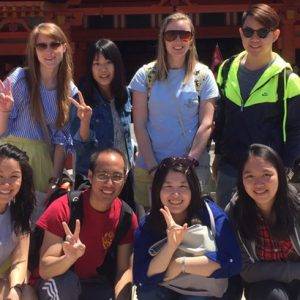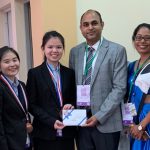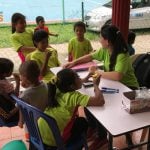I am Brandon Mong Guo Jie. I graduated with a BSc (Hons) from IMU majoring in Biomedical Science and was the batch representative of BM1/11. During my studies at IMU, Dr Koh Rhun Yian was my mentor and helped me a lot. I developed an interest in parasitology and had a few discussions with her about the minimum requirement of studying a MSc programme and my career prospects in this area. Dr Koh was also my supervisor for my final year project in cancer research. After the completion of my final year project, I had the opportunity to intern at the Department of Parasitology, University of Malaya (UM), one of the most prestigious universities in Malaysia. I am grateful to Dr Lim Chooi Ling for assisting me throughout this internship application. 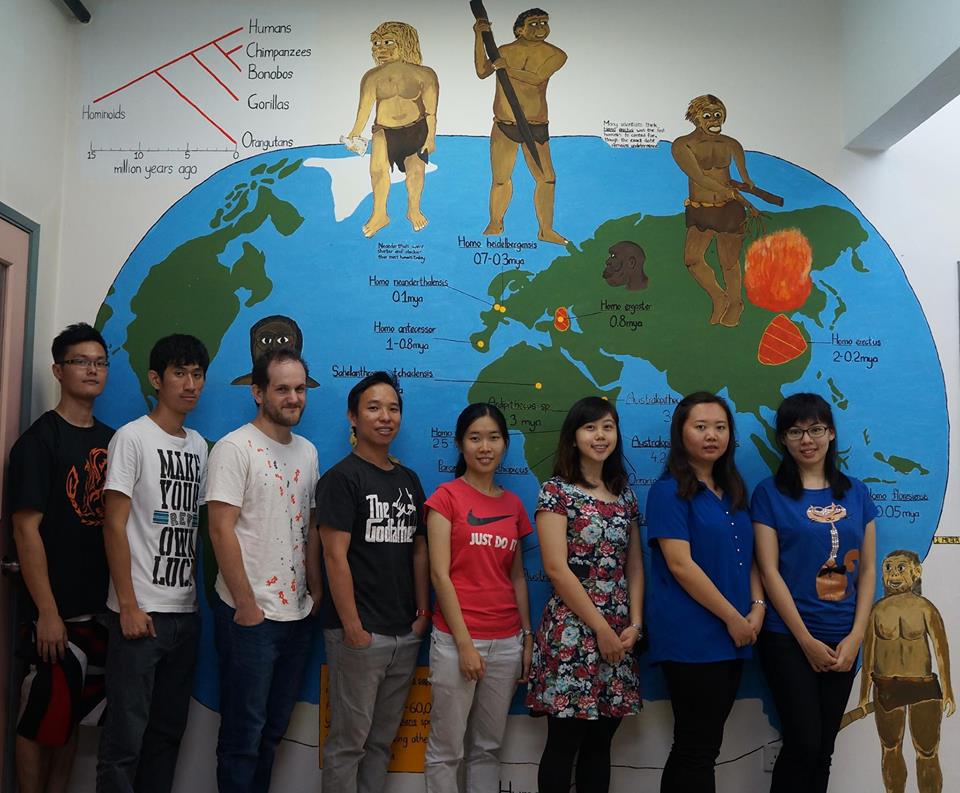 The comprehensive internship, under the supervision of A/Prof Veeranoot Nissapatorn, which allowed me to explore a variety of parasites, including soil-transmitted helminths (STH), water-borne parasites, Malaria parasites, and Toxoplasma gondii, eventually triggered my interest in research and strengthened my research skills. My internship supervisor gave me the task of designing a specific primer set to Polymerase Chain Reaction (PCR) to amplify a specific gene region of a parasite. I successfully designed the primer set with the basic knowledge I gained from IMU and I really appreciated that. Other than that, I had the opportunity to travel to Myanmar and Singapore to collect water samples which were potentially contaminated with water-borne parasites for a high-impact research (HIR) project in the UM. The travel experience not only enriched my knowledge in sample collection, but also encouraged me to engage in regional research projects. Apart from research, my internship supervisor taught me to be compassionate to stray animals. I assisted in a trap-neuter-release (TNR) programme and a few charitable events to raise fund for Animal Care Society.
The comprehensive internship, under the supervision of A/Prof Veeranoot Nissapatorn, which allowed me to explore a variety of parasites, including soil-transmitted helminths (STH), water-borne parasites, Malaria parasites, and Toxoplasma gondii, eventually triggered my interest in research and strengthened my research skills. My internship supervisor gave me the task of designing a specific primer set to Polymerase Chain Reaction (PCR) to amplify a specific gene region of a parasite. I successfully designed the primer set with the basic knowledge I gained from IMU and I really appreciated that. Other than that, I had the opportunity to travel to Myanmar and Singapore to collect water samples which were potentially contaminated with water-borne parasites for a high-impact research (HIR) project in the UM. The travel experience not only enriched my knowledge in sample collection, but also encouraged me to engage in regional research projects. Apart from research, my internship supervisor taught me to be compassionate to stray animals. I assisted in a trap-neuter-release (TNR) programme and a few charitable events to raise fund for Animal Care Society. 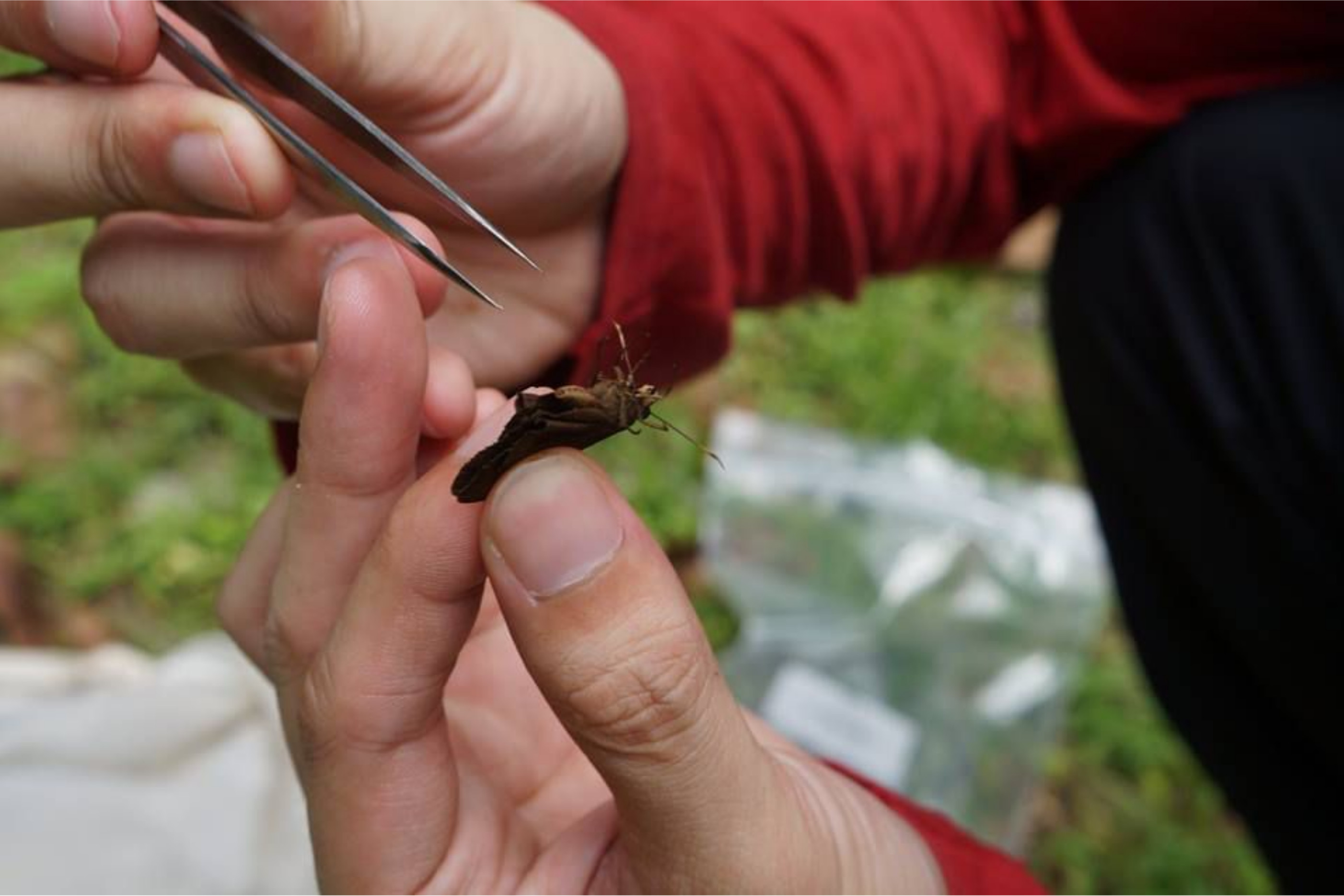 My involvement with the stray animals led me to further my studies in wildlife conservation, particularly arthropods which are widely ignored in conservation biology. My MSc project involved the application of metabarcoding (the coupling of high-throughput sequencing and DNA-based species identification) to assess important ecological questions relating to the maintenance of arthropod biodiversity and ecosystem functioning in view of the threat of climate change under the supervision of Dr John James Wilson.
My involvement with the stray animals led me to further my studies in wildlife conservation, particularly arthropods which are widely ignored in conservation biology. My MSc project involved the application of metabarcoding (the coupling of high-throughput sequencing and DNA-based species identification) to assess important ecological questions relating to the maintenance of arthropod biodiversity and ecosystem functioning in view of the threat of climate change under the supervision of Dr John James Wilson.
Besides working on my own research projects, I am also involved in one of his research projects, which urged public to engage with wildlife by collecting butterfly legs for species identification through DNA barcoding in order to raise the awareness of biodiversity loss.
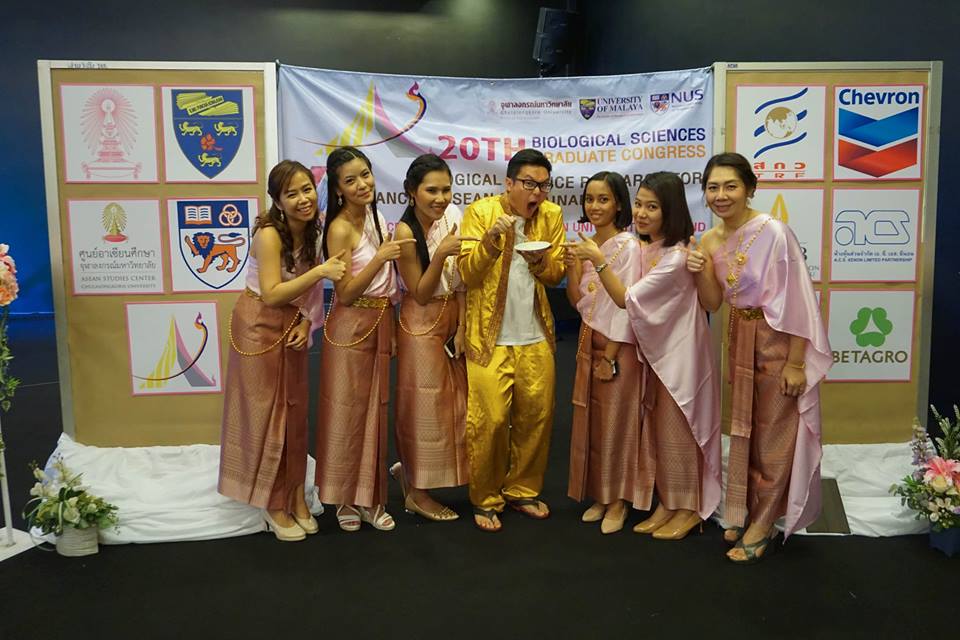 Throughout my MSc programme, I attended two international conferences (Canada and Thailand) to share my research findings with other scientists and this has improved my communication skills. I have also been actively involved in organising an international conference and trained to write research articles and reports. I am an author of eight peer-reviewed articles (six published articles and two articles were accepted for publication). Among the eight articles, I am the first author of a highly cited article with 20 citations within 1.5 years and an article in a journal with an impact factor of 5.9! I am currently writing more scientific articles and have two undergoing review. After completing my MSc programme, I was selected and received funding from my university to participate in the Sixth Metabarcoding Spring School at Kunming, China for a meta-analysis training.
Throughout my MSc programme, I attended two international conferences (Canada and Thailand) to share my research findings with other scientists and this has improved my communication skills. I have also been actively involved in organising an international conference and trained to write research articles and reports. I am an author of eight peer-reviewed articles (six published articles and two articles were accepted for publication). Among the eight articles, I am the first author of a highly cited article with 20 citations within 1.5 years and an article in a journal with an impact factor of 5.9! I am currently writing more scientific articles and have two undergoing review. After completing my MSc programme, I was selected and received funding from my university to participate in the Sixth Metabarcoding Spring School at Kunming, China for a meta-analysis training. 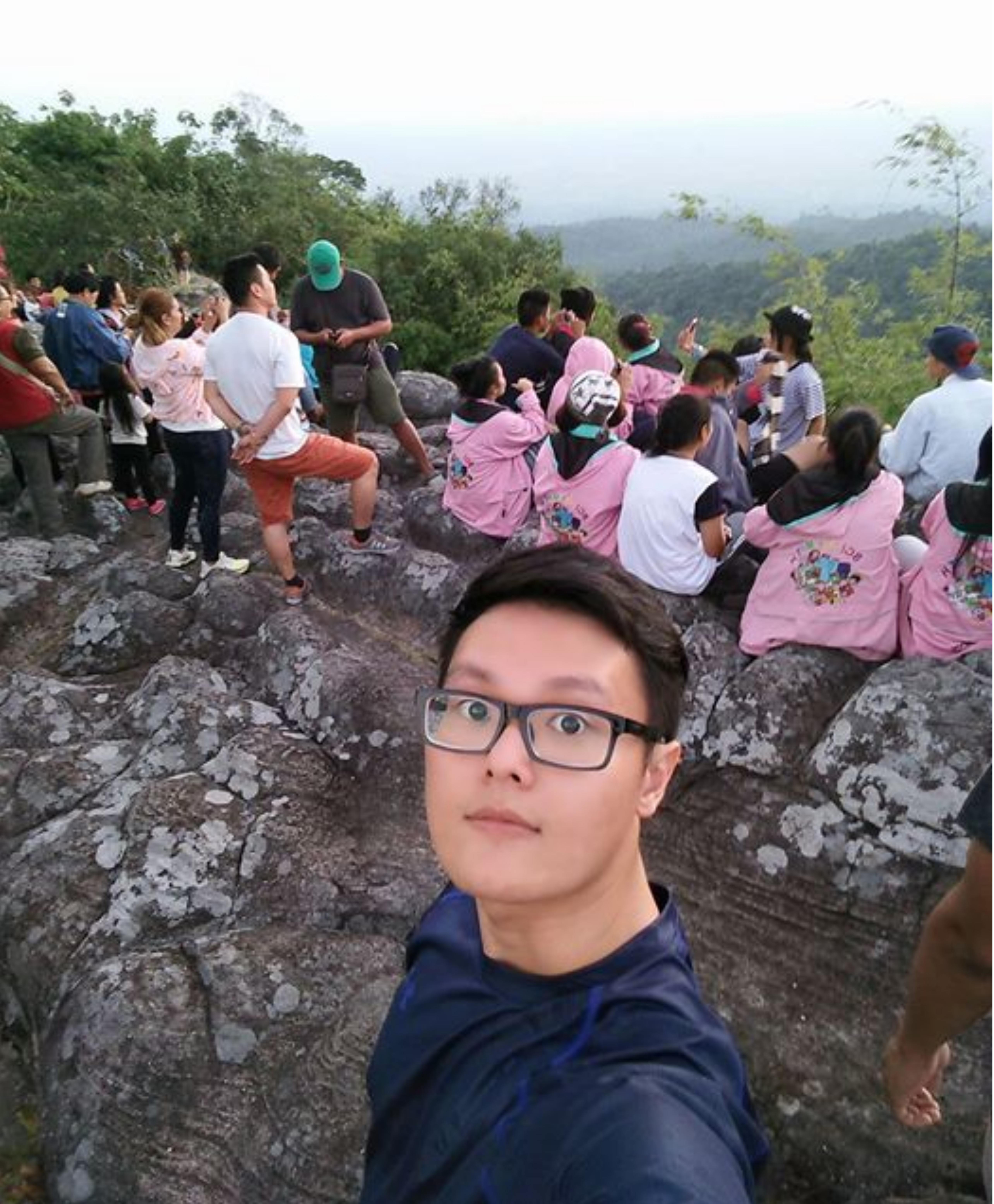 In the future, I aim to be a multidisciplinary researcher particularly in parasitology, ecology and biodiversity. I am keen to promote and share the knowledge I have gained from ecologists, to parasitologists, policy makers and the public. Looking back, I would not have been able to achieve all the achievements aforementioned (eg publications and conferences) without the support from my supervisors, friends, and family members. I am neither a First Class Honours BSc student (I am a Second Upper Class BSc student with the lowest cGPA that you could imagine!), nor gifted with good writing skills. I received a lot of sarcastic comments on my writing skills, yet I worked very hard to improve them. I also learned that working hard is not enough to achieve my goals, instead, we need to be efficient, work hard and smart. Besides that, we need to appreciate and perform better when we have been given a second chance to turn over a new leaf. I have seen some of my friends who did not do well in their pre-university studies,but who did well in their undergraduate and postgraduate studies.
In the future, I aim to be a multidisciplinary researcher particularly in parasitology, ecology and biodiversity. I am keen to promote and share the knowledge I have gained from ecologists, to parasitologists, policy makers and the public. Looking back, I would not have been able to achieve all the achievements aforementioned (eg publications and conferences) without the support from my supervisors, friends, and family members. I am neither a First Class Honours BSc student (I am a Second Upper Class BSc student with the lowest cGPA that you could imagine!), nor gifted with good writing skills. I received a lot of sarcastic comments on my writing skills, yet I worked very hard to improve them. I also learned that working hard is not enough to achieve my goals, instead, we need to be efficient, work hard and smart. Besides that, we need to appreciate and perform better when we have been given a second chance to turn over a new leaf. I have seen some of my friends who did not do well in their pre-university studies,but who did well in their undergraduate and postgraduate studies.
My advice to other students are “Do not procrastinate or give up. Always do your very best. Keeping in touch with your lecturers is also very important, because you might need their recommendation letter to apply for a postgraduate study or a job. No one will write a recommendation letter for you if you never talked to them or performed badly throughout your studies.”
I also hope everyone will be compassionate to those in need, including humans, strays, and wildlife; and give them all a helping hand. Live together, love forever.





